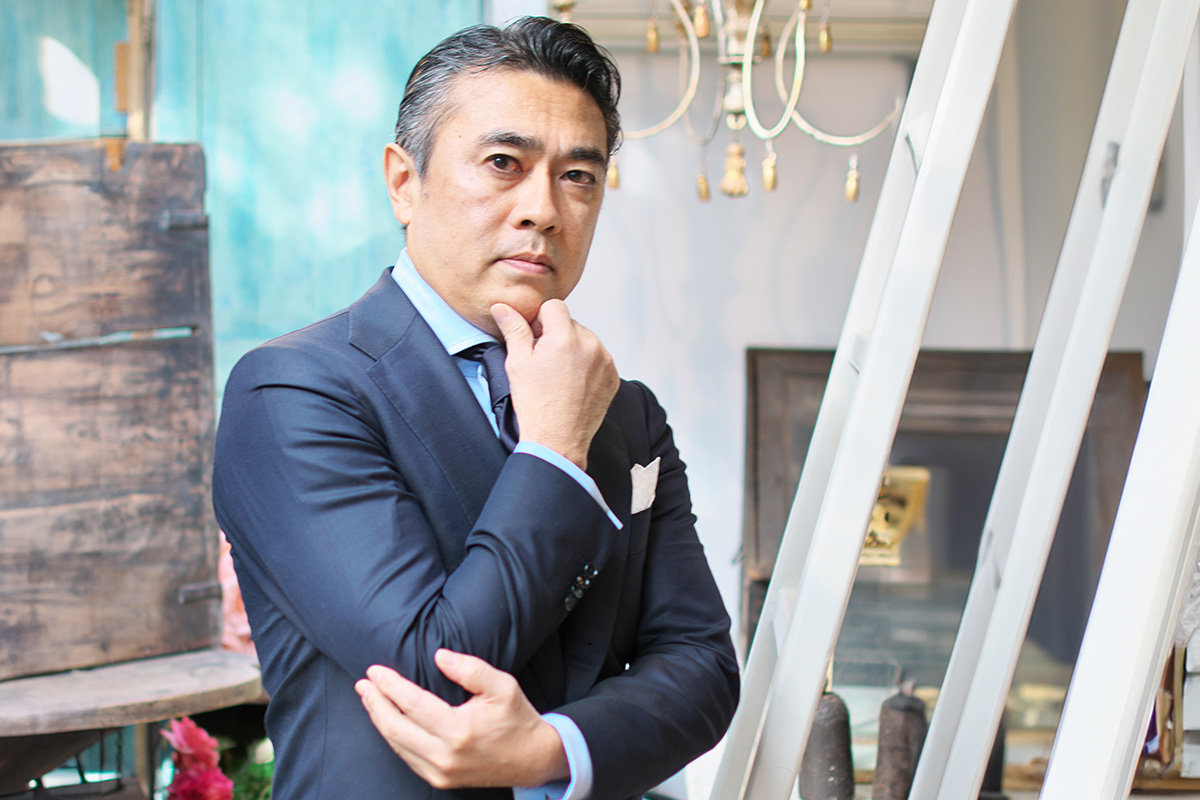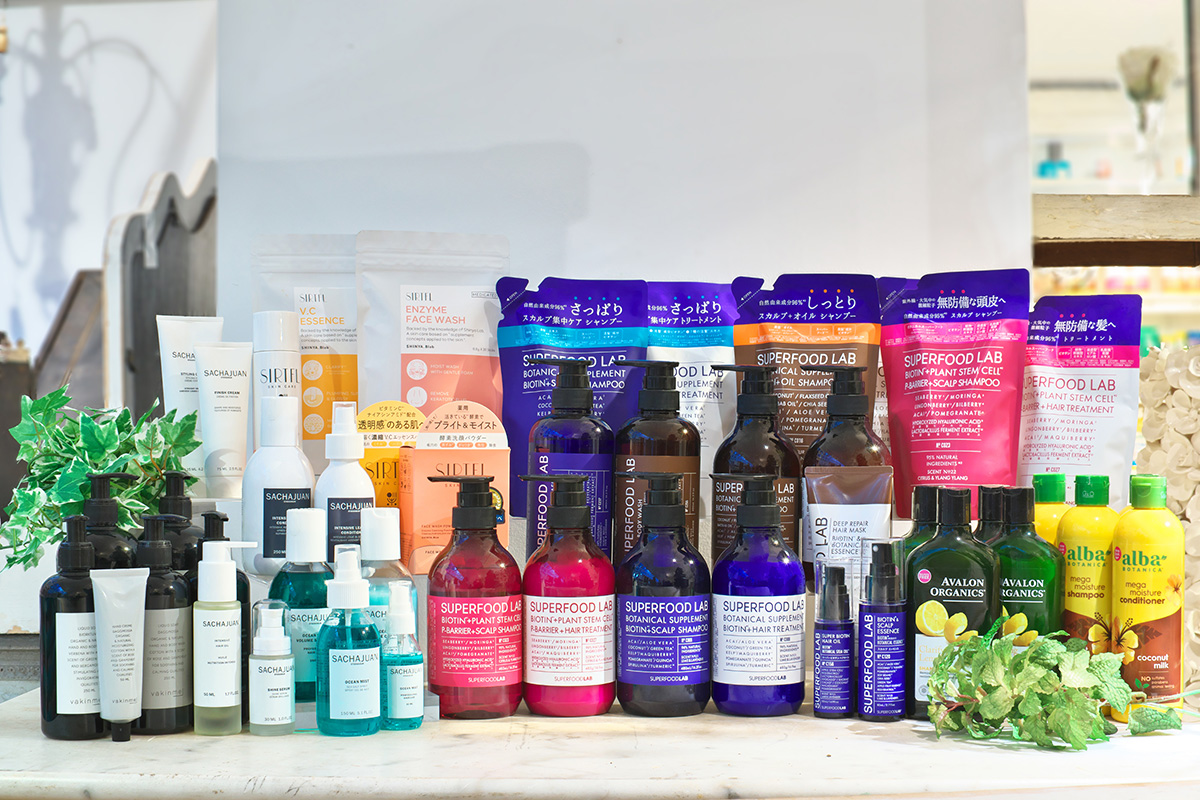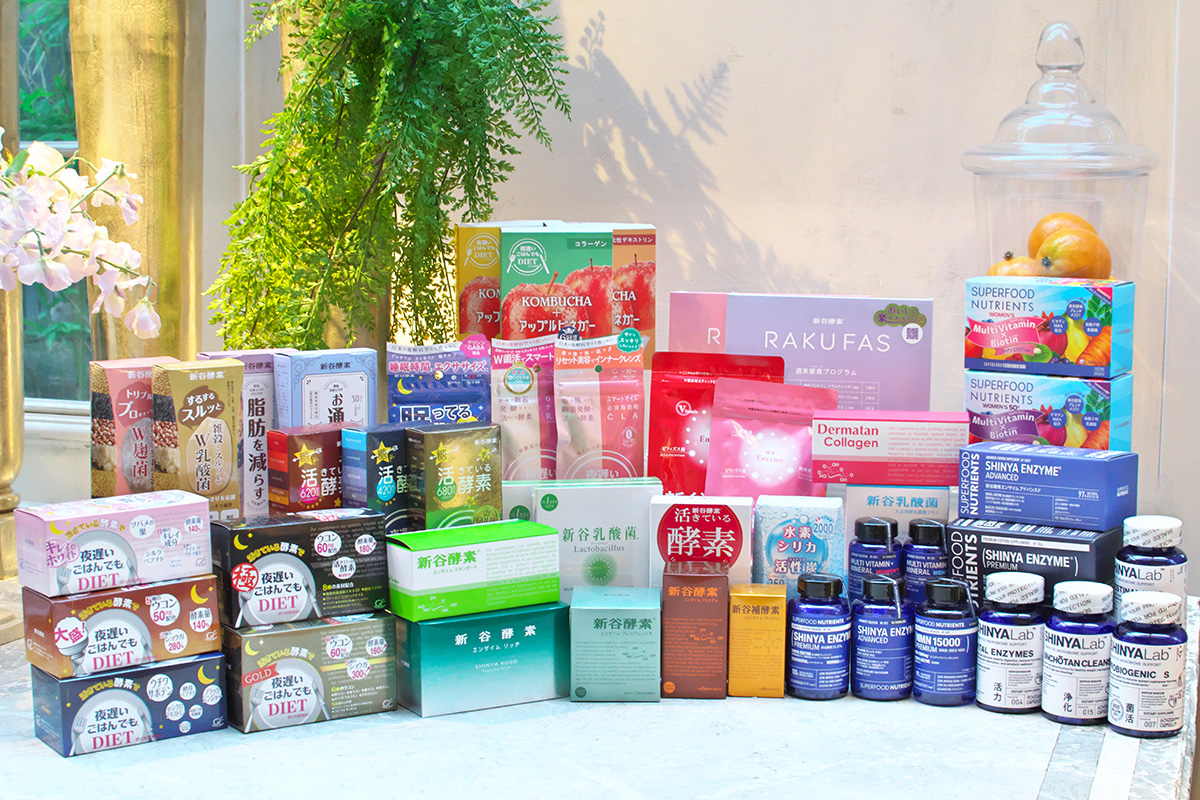This interview offers significant perspectives on preventive medicine in Japan. Exploring partnerships with distinguished medical professionals and creating distinct enzyme-based products, this interview highlights obstacles in exporting Japanese health goods, strategies for worldwide expansion, and the launch of inventive offerings in various markets.

Can you provide a brief overview of your company?
We collaborate closely with numerous doctors, and it's widely understood that a doctor's role often begins when a patient is diagnosed with a disease. Among the many doctors we've met, our initial encounter was with Dr. Hiromi Shinya, who was based in New York at that time. Rather than solely pursuing profitability, he and some doctors were dedicated to a vision of disease prevention, emphasizing daily nutrition, life cycles, and lifestyles as crucial factors.
Dr. Shinya, renowned for establishing endoscopic treatment, had thoroughly investigated the intestinal conditions of more than 350,000 patients. Observing the lifestyle of a person with intestinal disease, it became apparent that factors such as inadequate water intake and problematic eating habits were notable contributors. Maintaining clean organs is integral to reducing the risk of intestinal disease. Remarkable changes are often evident within six months of incorporating proper eating habits and supplements such as enzymes into one's routine, as well as adequate water intake to keep the organs clean.
In 1968, Dr. Shinya introduced innovative tools, including a snare wire for cauterizing polyps. Through his pioneering surgical methods, he achieved a remarkable 30% reduction in the number of required surgeons. Initial skepticism and criticism arose, as this shift apparently implied a significant loss of jobs. However, within a year of implementation in New York, perceptions changed drastically as the approach's effectiveness became evident. In the New England Journal of Medicine, Dr. Shinya was featured as one of the world's best doctors who contributed to medicine.
His book has now been published in 24 different countries, reflecting the global impact of his insights.
Nowadays, preventive medicine is at the forefront of people's minds. Social security expenses have risen exponentially in Japan because of its elderly population, and hospitals were completely overwhelmed during the COVID-19 pandemic. There's a need for preventive solutions such as enzymes. Could you tell us more about how your business is working toward that, especially given Japan's situation? How are you helping doctors like Dr. Hiromi who aren't familiar with the commercialization of products? What role does your business play in that respect?
Our primary business focus has been our collaboration with Dr. Shinya. We distributed his products in department stores and supermarkets, supplementing these efforts with promotional activities on TV shows. This comprehensive approach significantly contributed to the widespread recognition of these products in the Japanese market.
Dr. Shinya's books, which candidly discuss the potential health implications of consuming milk or the adverse effects of drinking green tea, introduced new concepts that were initially shocking to the public. Despite this, his books have sold over three million copies in Japan.
In response to Dr. Shinya's assertions, the milk producers in Japan collectively filed a lawsuit against him. They used extensive newspaper advertisements to refute his claims, seeking evidence to support his statements. Dr. Shinya said he is not a scientist and does not intend to provide scientific proof. Still, as a doctor, he pointed out the fact that there have been observable changes in the bodies of thousands of patients who have experienced improvement after stopping milk consumption.
Through meticulous endoscopic examinations of Japanese patients, Dr. Shinya identified an issue related to stomach shrinkage. The number of patients undergoing stomach scans in Japan is much higher than in the US. In-depth investigations into daily dietary habits, comparing those with and without stomach cancers, revealed a surprising connection to green tea. The sole distinguishing factor was the consumption of green tea. Once patients ceased drinking green tea, the issue of stomach shrinkage resolved. Contrary to the widespread belief in the overall health benefits of green tea, Dr. Shinya discovered that it may not be suitable on an empty stomach—it's advisable to consume it with food. However, Hōjicha, the dark brown tea, does not pose a similar issue.
Years of dedicated research led Dr. Shinya to an important discovery—the presence of enzymes in the body distinguishes a healthy individual from one who is not. Our emphasis shifted toward enzyme products, particularly a unique category known as living enzymes. Collaborating with various doctors, we conducted extensive research to develop unique enzyme-related products, marking the beginning of our enzyme business.
Our approach involves meticulous research, close collaboration with doctors, and the creation of distinctive and beneficial supplements, one at a time.
Japan's consumer market is extremely demanding. In terms of quality and standards, Japanese supplement companies tend to develop products that are focused on the Japanese market. However, the competitive edge of such products often fails to be understood by customers in international markets. For example, Japan developed the Kanpō medicine with its roots in Chinese medicine and was introduced into Japan in approximately the 5th or 6th century. Still, it is a struggle to export it to overseas countries. Why is it so challenging to export Japanese health-related products overseas, and to what extent must you look overseas to ensure long-term business success?
Our business revolves around importing and exporting, providing us with a unique perspective on the strengths and weaknesses of Japan and its products. Japanese cuisine, renowned for its popularity worldwide, boasts a rich array of unique and original fermented ingredients such as miso, shoyu, and tsukemono. In Japan, there are many ingredients from the diverse nature of Japan, which features mountains, rivers, and coastal areas.
Dr. Shinya emphasized Japanese food, but this was not to say that Japanese food alone was perfect. We have worked with what we call "enzyme masters" to verify and research what enzymes should be added. We produce fermentation-based supplements based on traditional Japanese fermentation techniques with research-based improvements.
Only a few Japanese companies aggressively develop their business in the international market. Even bigger supplement firms have only expanded their business overseas recently. We were among the first to begin our global expansion, reaching countries like China, Taiwan, and Singapore. Focusing on fermented products, we've selected markets that seem easier to penetrate. In contrast to European or US companies that often diversify their product offerings when expanding overseas, Japanese companies tend to take only one brand abroad. This choice is influenced by differences in food habits and language barriers. In Japan, there is less emphasis on dietary preferences such as gluten-free, vegan, or vegetarian, and fewer research groups are dedicated to these fields than in Europe.

There are many Asian communities in the US, Europe, etc. How do you address the Asian community?
Our products are widely recognized and embraced by Asian communities across the globe.
To do business successfully in markets worldwide and establish a presence as a Japanese brand, we need to diversify our product line, just as Europe or the US do. Among Japanese companies that manufacture supplements, we are among the few companies to label gluten-free products. We can do this with the help of Japanese suppliers and international suppliers with expertise in gluten-free and vegan product development. This practice, though time-consuming, ensures transparency and aligns with our dedication to offering gluten-free options.
Each ingredient sourced from Japan holds unique qualities. We transport these distinctive ingredients to our overseas factories for product manufacturing—an aspect we aim to expand. However, regulatory barriers exist in specific countries like Indonesia, Thailand, and Malaysia, where stringent regulations pose challenges. To address this, we are gradually working towards establishing production sites in some countries, such as Malaysia.
On the other hand, we import some ingredients from India. This approach allows us to consider various scenarios, such as using the most appropriate ingredients from other countries for production in Japan or vice versa.
Addressing dietary preferences and restrictions, we have also begun working on Halal certification. Since it is difficult to obtain world-class Halal certification in Japan, we aim to get in Malaysia, and after that, we are considering entering Arabic countries. We are aware of the hurdles involved in such an endeavor, but we are willing to take on the challenge.
In our previous interviews with key players in the industry, they mentioned the importance of collaboration to leverage the expertise of others or finding local partners to be more competitive in foreign markets they don't know much about. You also act as an agent for foreign firms to enter the Japanese and Asian markets with brands such as Sachajuan and Meraki. What makes you the ideal partner to enter these markets, and are you searching for new opportunities to collaborate and develop partnerships in the overseas market?
A particular Taiwanese company has been in business in more than 60 different countries. While Japan boasts a strong economy, many firms are hesitant to venture abroad, presenting an opportunity we are actively seizing.
As an illustration, collagen experienced significant popularity in Japan 20 years ago and is now gaining traction in the US and Europe. Capitalizing on this trend, the Taiwanese company expanded its collagen business. Japanese technologies have contributed to the perception among Japanese consumers that collagen should be odorless and tasteless. However, in other countries, consumers may describe it as having a distinct smell, likening it to pig or fish odor.
The challenge arose when the Taiwanese company introduced Japanese-made collagen, which lacked the expected scent, to international markets. Overseas users assumed it had no collagen at all due to the absence of the familiar smell. As a result, partners from abroad approached us, seeking collaboration in developing products, such as collagen, tailored for international markets.
Unlike Japan, Taiwan, China, and Korea possess robust sales channels and networks. Establishing strong connections is crucial when working with local people, especially in Taiwan, China, and Korea. Without such connections, survival in these markets becomes challenging.
During my high school years, my experiences at Camp Carmel in the US left a lasting impact on me. The diverse composition of families, uniting individuals from various races, was particularly striking. The unity of a family, irrespective of Asian, Black, or other racial backgrounds, was very different from the norm in Japan. These experiences, being together with people from different cultures, set me apart from the typical Japanese mindset.
While many Japanese individuals predominantly work and live in Japan without a strong urge to venture abroad, my exposure to diverse cultures has created an opportunity for me to pursue international experiences.
Drawing an analogy, my vision for the company is to create the "curry rice" or "California roll" in this business field. Although curry rice is now a Japanese dish, its roots trace back to India. California rolls are a unique local evolution of Japanese sushi. Similarly, we aspire to create innovative products that take root locally, utilizing various unique ingredients.
Where would you like to continue your international expansion in the coming years? Which specific location would be more important to expand your business?
We focus on developing industrial markets in Europe and the US in the past, but we now see significant opportunities in China. The dynamic changes in China over recent years have captured our attention, prompting us to observe their evolving networks and business environment closely.
An interesting observation is the success of platforms like TikTok, which, while originating in China, has become a global sensation. Notably, the Chinese often establish thriving businesses on TikTok in even other countries like Singapore, Thailand, and Malaysia, rather than the locals.
We also focus on Southeast Asian countries, aiming to build strong networks. The key for us lies in finding reliable partners. As we expand, our commitment is to localize our approach, engage with potential partners, and foster meaningful relationships.
I was surprised when I went to Vientiane, Laos, a few months ago because of the prevalence of electric vehicles and the use of cashless payment methods like credit cards or mobile payments. We are very interested in these various markets that offer diverse opportunities.
Our primary focus is East or Southeast Asia, followed by the US market. We plan to introduce new products featuring Japan-originated ingredients in the US market next year. In the past, we faced challenges in the supplement sector in the US due to the impact of COVID-19. Nevertheless, we have learned from these experiences and adjusted our approach accordingly.

Could you elaborate on your new products for the US market next year?
We've taken on the challenge of creating a vegan version of Tonkotsu ramen, traditionally made with pork bone soup, by utilizing our original konnyaku noodles and carefully blending various ingredients to recreate the distinctive flavor. This innovative approach sets us apart, and we believe it's a unique offering in the market.
However, the diverse regulations of different supermarket chains in the US have proven challenging. Each chain has specific requirements, making it necessary for us to adjust and modify our ingredients accordingly. What may be acceptable for a chain might not align with the standards set by another one. We recognize the complexity of this task and are actively seeking local partners who can assist us in overcoming these hurdles more efficiently.
The founder, Mr. Hiromi Shinya, believes good health comes from using enzymes. To support human health, you developed the Shinya Koso Premium Series. How do you ensure that customers enjoy eating your products and use them for the long term?
Our commitment lies in the pursuit of preventive medicine proposed by Dr. Shinya. While many companies focus on treating diseases, we develop products that proactively prevent illnesses. The protein enzyme is a standout product, offering a unique approach to health and wellness.
Remaining close to our consumers or clients is a core principle for us, influencing the development of supplements that prioritize ease of consumption.
Hydrogen-containing powdered products are one example. Hydrogen is tasteless and odorless, making it ideal for blending into various beverages, including alcoholic beverages, and can be added to coffee to enhance its flavor further. We focus on powdered products because they are easier to integrate into meals, beverages, and foods.
If we were to return to interview you on the last day of your presidency, do you have a personal goal or ambition for the business that you would like to achieve by that date?
We aspire to enable as many people around the world as possible to lead healthy and fulfilling lives free from illness.
To this end, we would like to promote the wonders of Japan to the world, and at the same time, we would like to incorporate the good points of other countries into Japan.
We want to create products that will please local people, such as curry rice and California rolls, and we would like to bring excellent products from other countries to our Japanese customers.
Fortunately, we have continued to do business with companies in Denmark and the US for many years. Although there were some difficulties initially, with those companies' help, we have made much progress and succeeded.
Our aspiration cannot be achieved by us alone. Together with our trusted partners, we hope to contribute to the health and lives of people around the world.
At the end of the interview: For more details, explore their website at https://go-g.biz/
0 COMMENTS